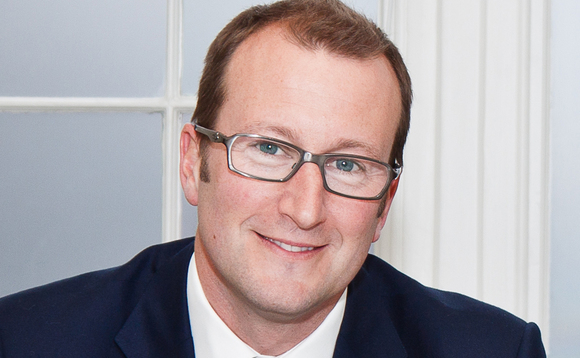
Refinancings: “An expensive window to miss,” says Marlborough’s Guise

European debt markets are particularly buoyant at the moment, which should prompt buyout houses to accelerate their refinancing efforts, notably in the mid-cap space. But the window of opportunity might not stay open for very long, Marlborough’s Jonathan Guise warned at last week’s EVCA Forum in Geneva. Greg Gille reports
Although private equity dealflow has remained somewhat subdued so far in 2013, access to financing certainly is not to blame. "Debt markets are very hot right now," says Jonathan Guise, a partner at debt advisory firm Marlborough Partners. "Banks are seeing that they can make money from underwriting again, so they are returning to a more risk-on mentality. In the mid-market too, low activity volumes mean that there is a significant supply/demand imbalance for loans."
Looking at European loan issuances in the first two months of the year reveals a healthy 260% increase compared to the same period last year, according to figures published by Standard & Poor's.
Guise highlights that refinancing efforts for large-cap buyouts have been a strong driver in recent months: "The market has dealt very efficiently with the so-called 'wall of debt' at the upper end of the value scale, with maturities coming down sharply for larger buyouts. Last year saw more than 20 'amend-and-extend' requests, and we are now seeing a shift towards full scale refinancings."
The current buoyancy should prompt GPs to accelerate their refinancing efforts, notably in the mid-market
High on yield
This was greatly helped by a sustained window of opportunity on the high-yield market. Yields have tightened significantly in recent quarters, with single-B bonds dropping from nearly 10% to around 7.5% between Q1 2012 and February 2013, according to Standard & Poor's figures. One of the latest businesses to refinance on the high-yield market was 3i-backed French medical diagnostics company Labco, which made a €100m bond issue at the start of February.
Terms have also steadily improved for high-yield issuers, with call periods shortening and portability (where the bond can stay in place despite a change of control) becoming more common. Guise adds that European issuers have also been able to tap into US liquidity in the last 6-9 months, which further helped drive issuance.
Given that this route is still very much off-limits for mid-cap players, the wall of debt however remains a pressing concern lower down the value chain, with a high volume of loans believed to be maturing in 2014-2015. "Refinancing issues have been tougher to resolve compared to the large-cap space, mostly since they can't tap into the high-yield market," notes Guise. "A number of mid-cap GPs have also been slower to address their portfolio maturity issues."
That said, mid-market players can count on the appetite displayed by private and institutional debt funds to finance their deals, says Guise, before pointing out that most of the US mid-cap space is already largely financed by private debt: "Unitranche is becoming increasingly popular in Europe at the moment. Although it is still in its infancy, it is a trend likely to accelerate."
According to Marlborough's own research, three unitranche loans were arranged in the first two months of this year, against 10 for the whole of 2012 and six in the previous year. Axa Private Equity notably made headlines earlier this month by arranging the largest European unitranche facility to date, providing PAI partners with a €220m loan to finance the €460m buyout of IPH.
Early bird catches the loan
Put together, these positive trends have led to a return to healthy leverage multiples: the annual pro-forma debt/EBTIDA ratio has been increasing steadily since the 2009 trough, reaching 4.7x in the first two months of 2013. "It doesn't really reflect the buoyance of the current market though, with talk of 6-7x multiples on new deals at the moment," says Guise. Electra's livestock identification company Allflex is believed to be among assets currently on the block that could fetch a 7x debt multiple – the business could reportedly be sold for $1bn or 10x EBITDA.
But for all this much-welcome optimism, Guise warns that GPs should make hay while the sun shines. "You could raise €10bn for a buyout at the moment if you tap into all available sources of European and US liquidity, but that is not going to last long," he says. "The European high-yield window has been open for six months now – and that is one of the longest we've seen – but it remains a volatile market."
Guise also adds that underwriting banks will become more cautious as the summer approaches, and the mid-market could prove increasingly problematic as numerous loans will mature in the next two years: "If you're a GP, be wise and refinance now – it is going to be a very expensive window to miss."
Latest News
Stonehage Fleming raises USD 130m for largest fund to date, eyes 2024 programme
Multi-family office has seen strong appetite, with investor base growing since 2016 to more than 90 family offices, Meiping Yap told Unquote
Permira to take Ergomed private for GBP 703m
Sponsor deploys Permira VIII to ride new wave of take-privates; Blackstone commits GBP 200m in financing for UK-based CRO
Partners Group to release IMs for Civica sale in mid-September
Sponsor acquired the public software group in July 2017 via the same-year vintage Partners Group Global Value 2017
Change of mind: Sponsors take to de-listing their own assets
EQT and Cinven seen as bellweather for funds to reassess options for listed assets trading underwater








